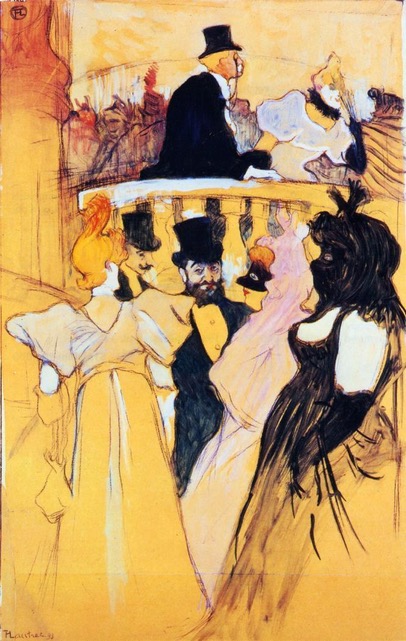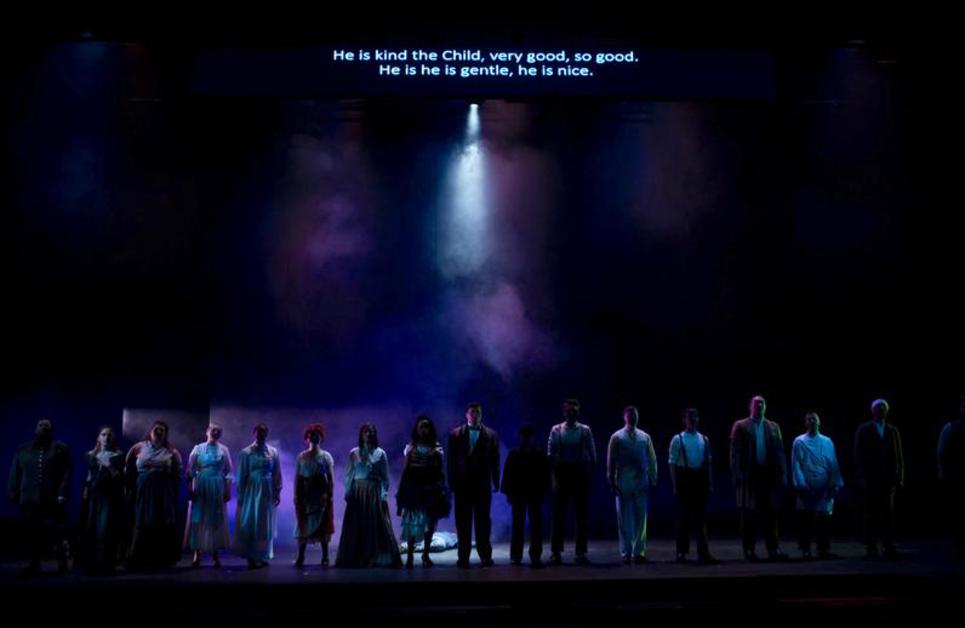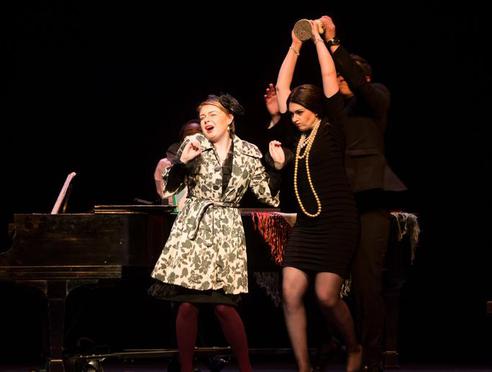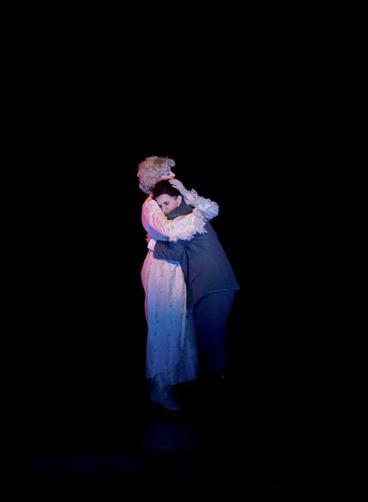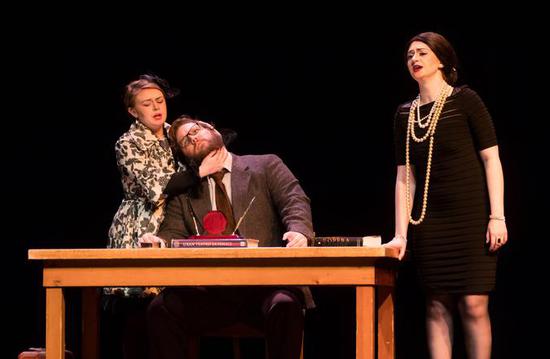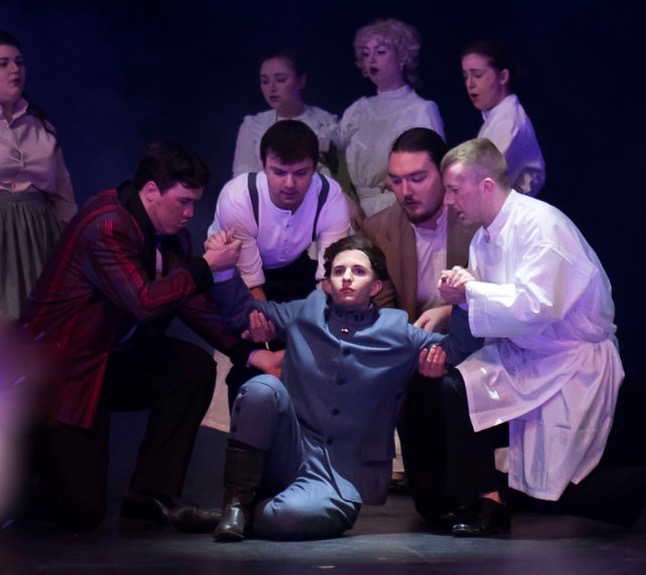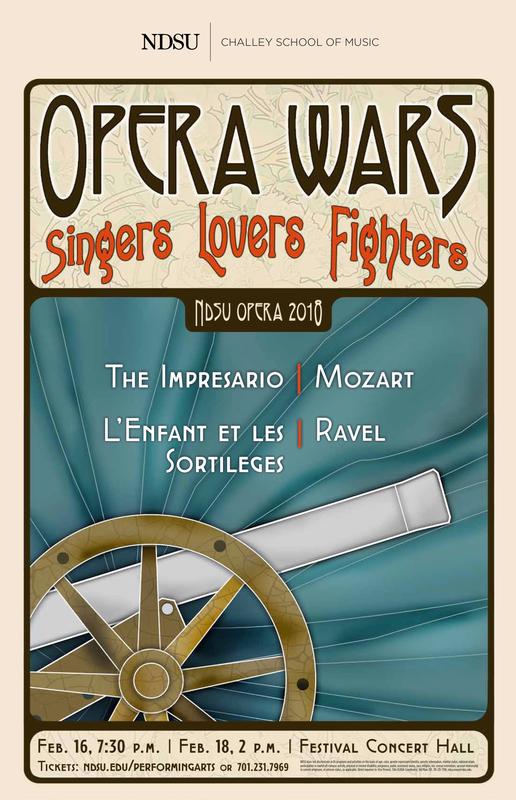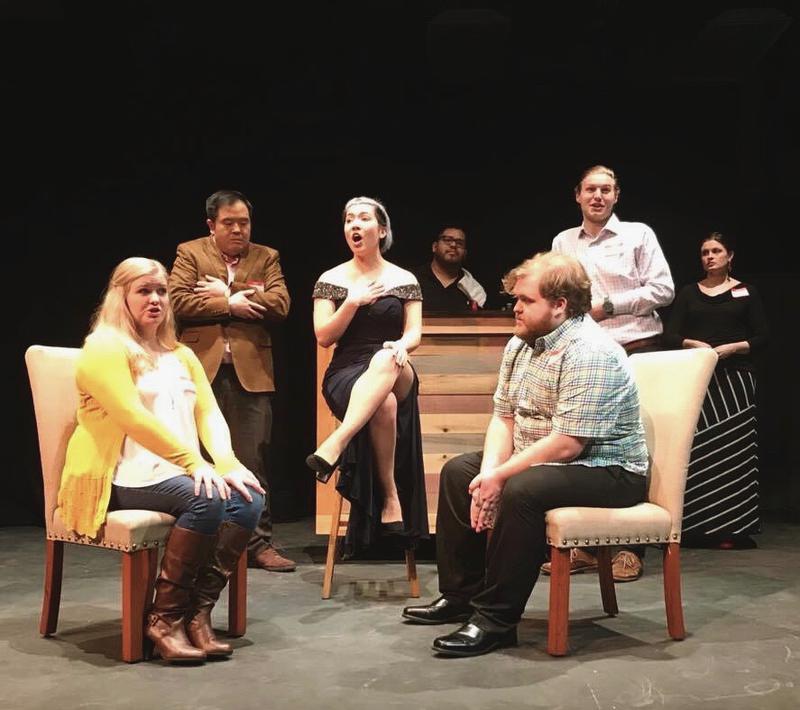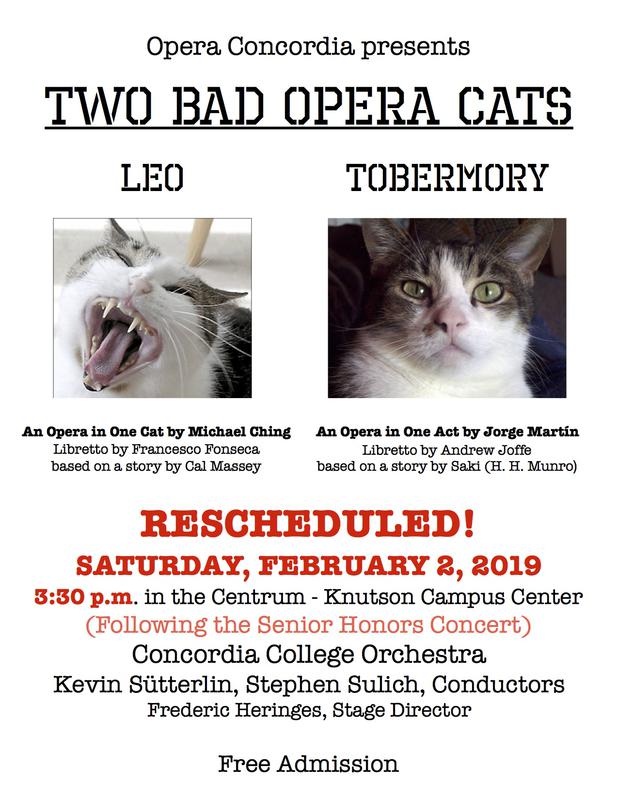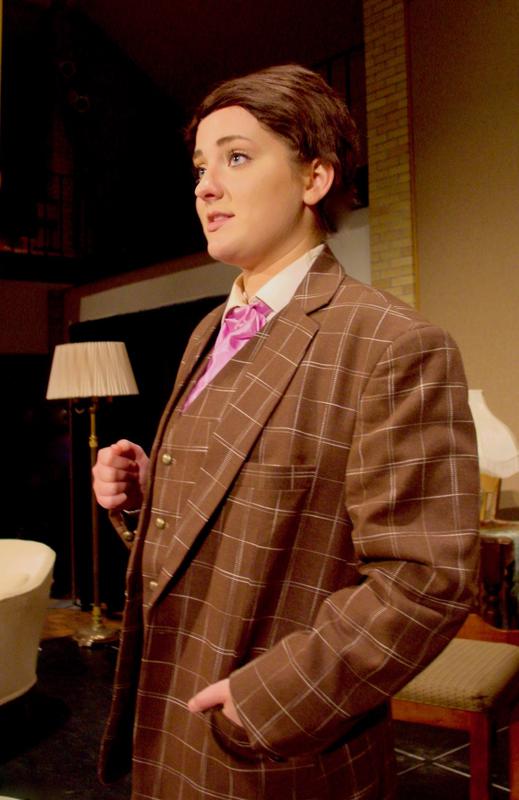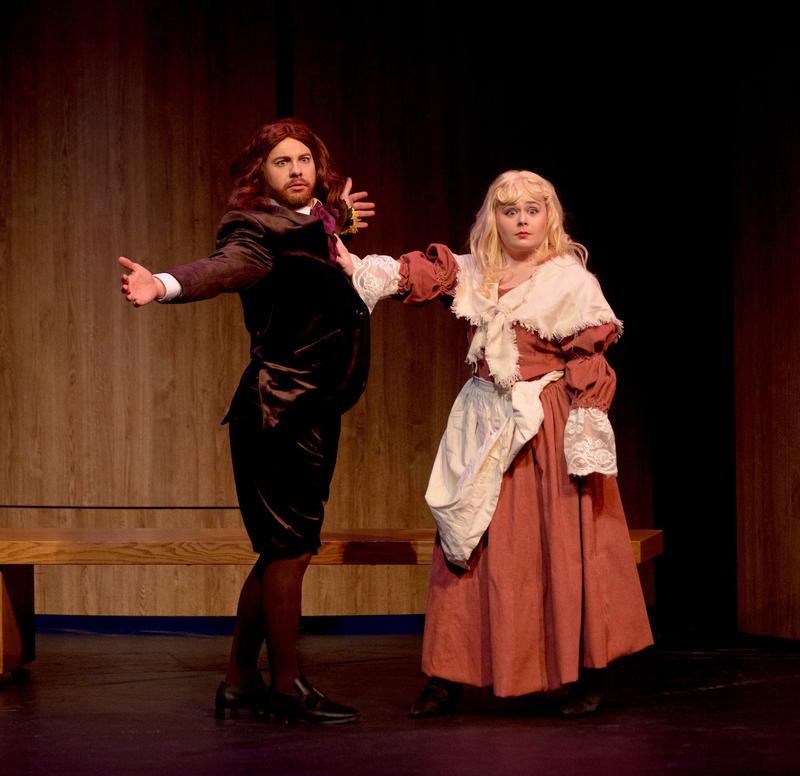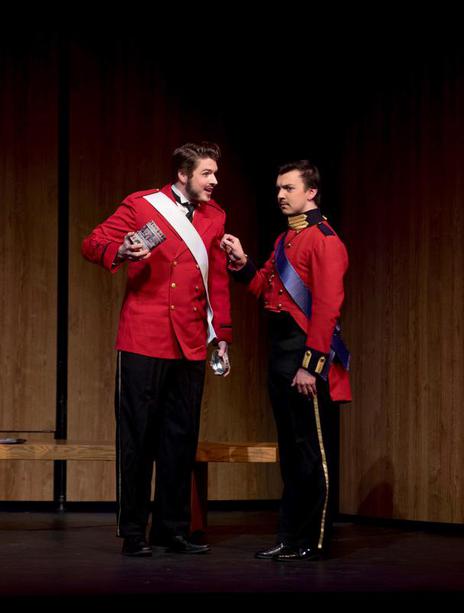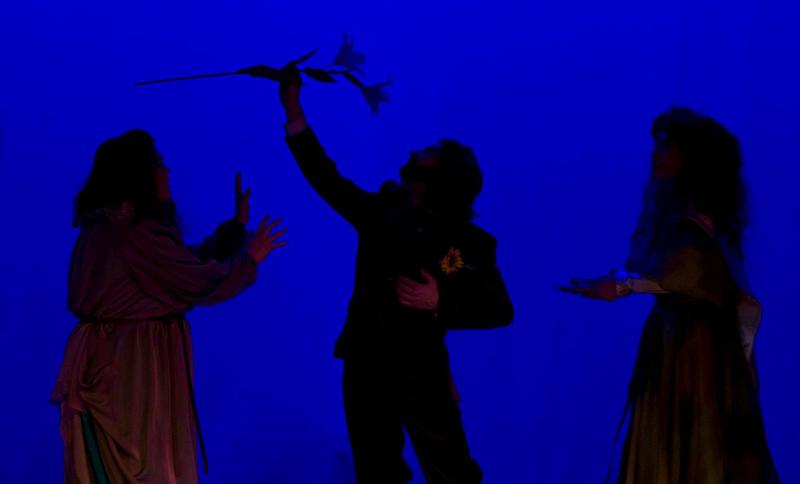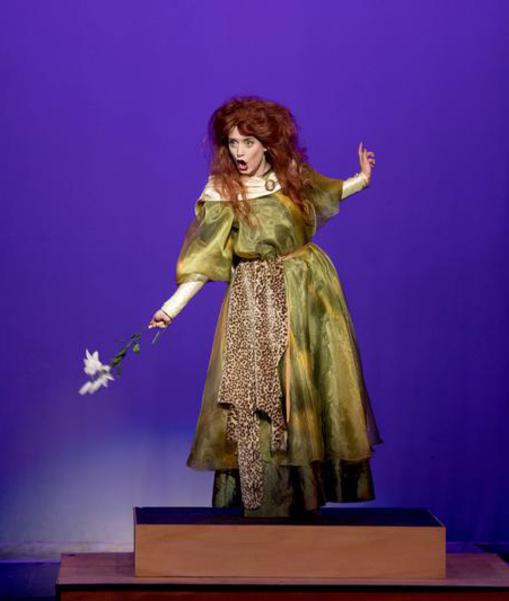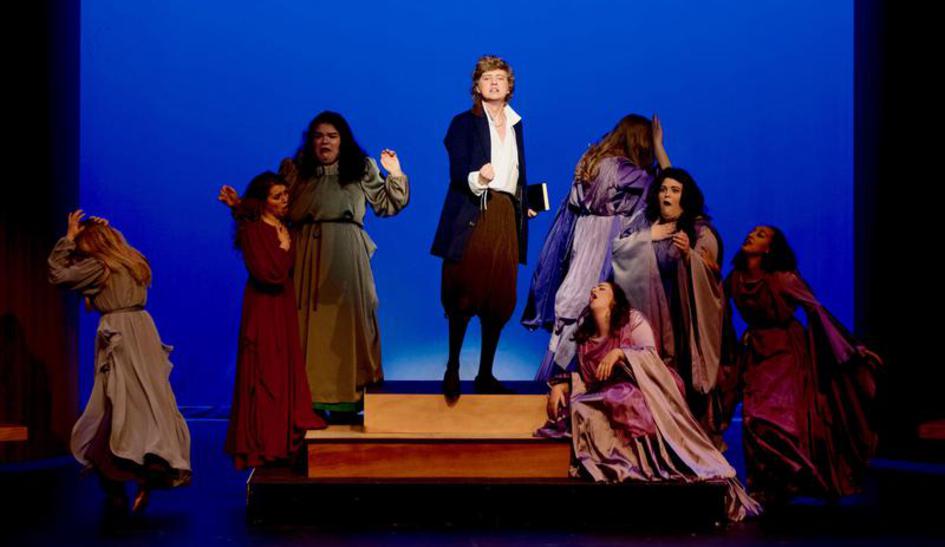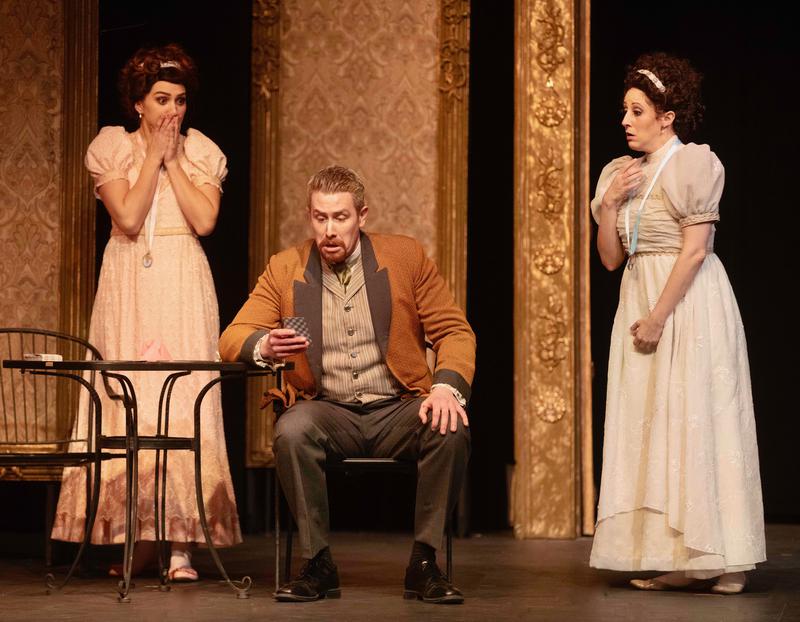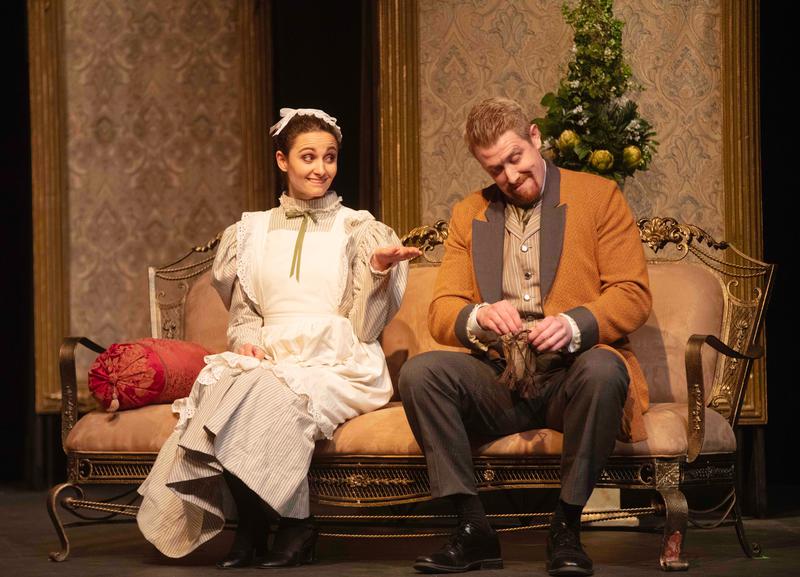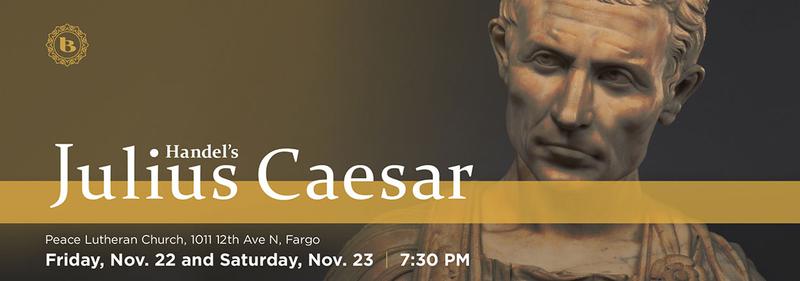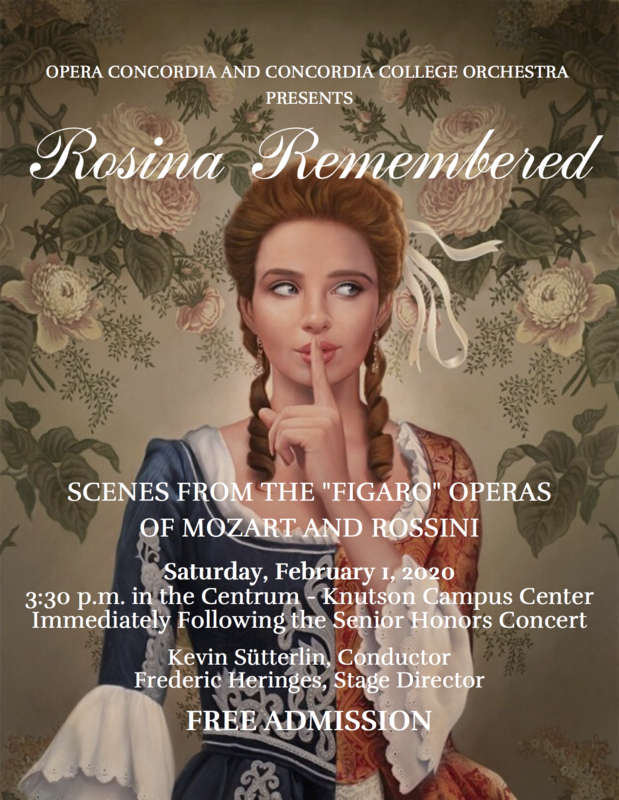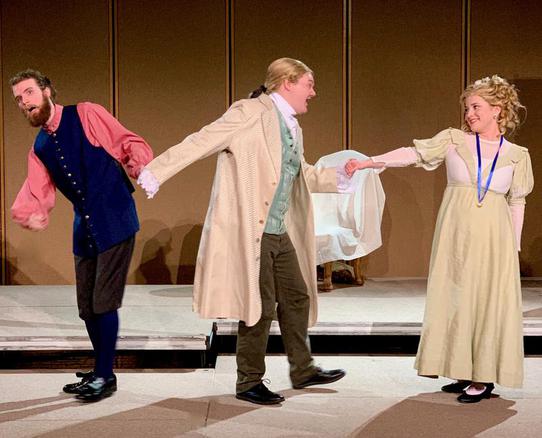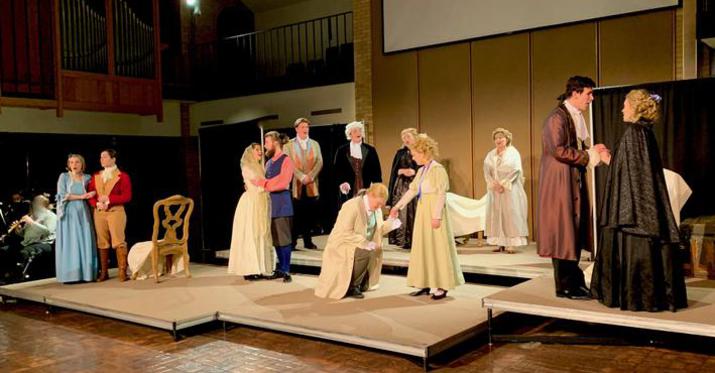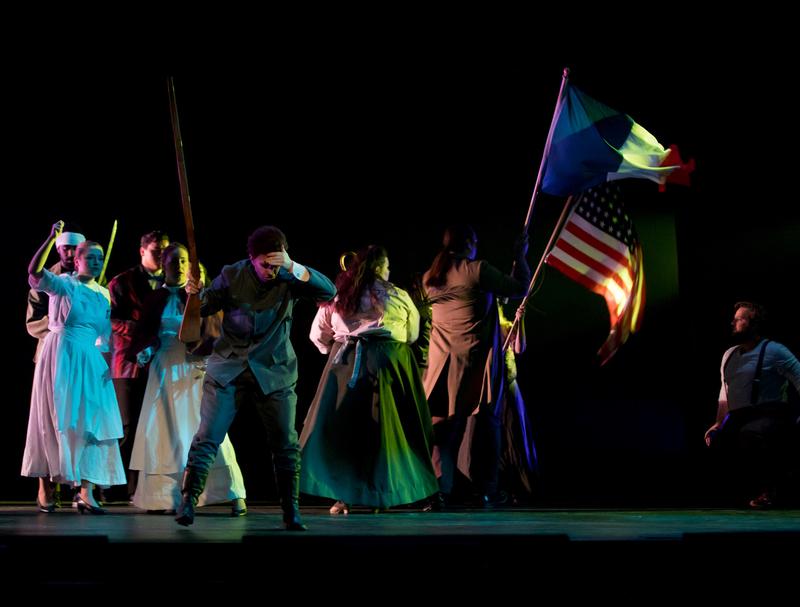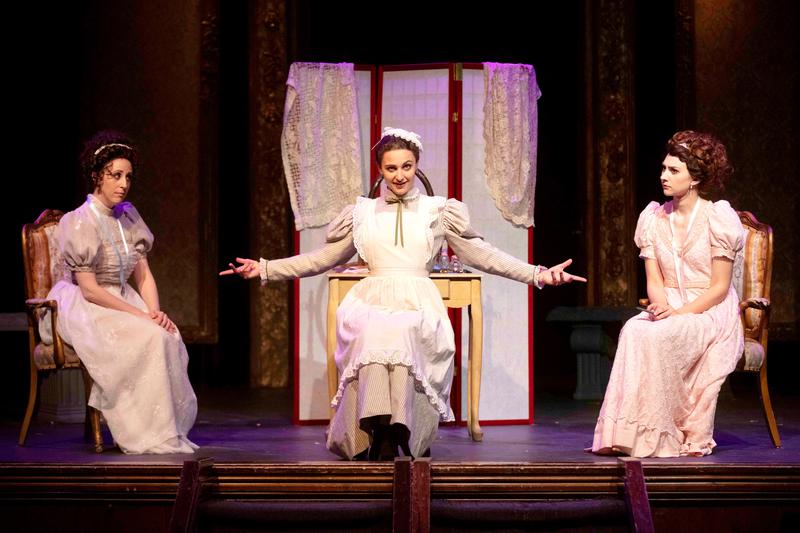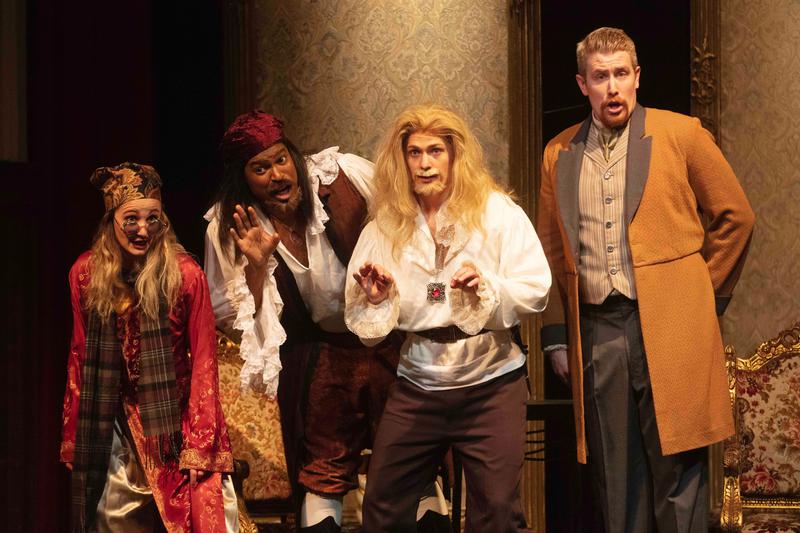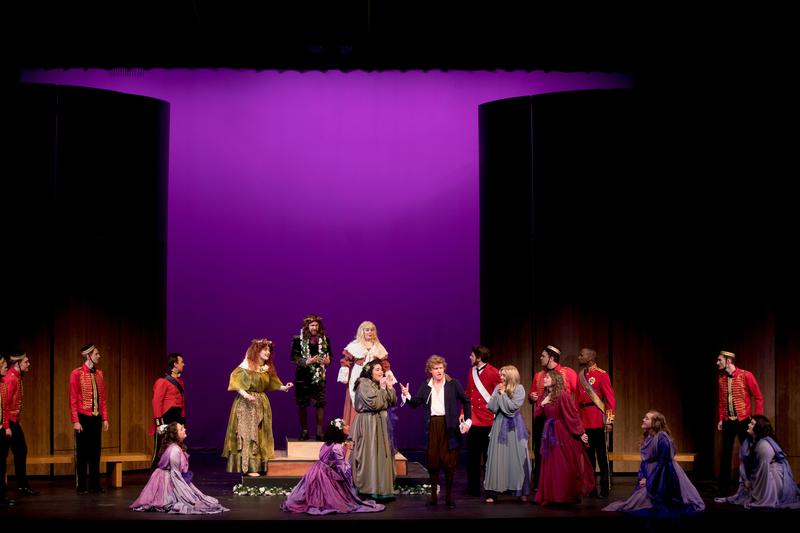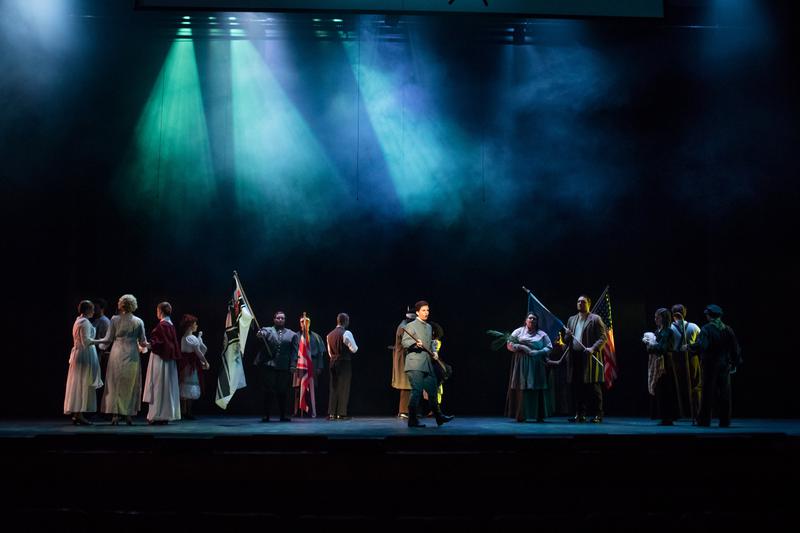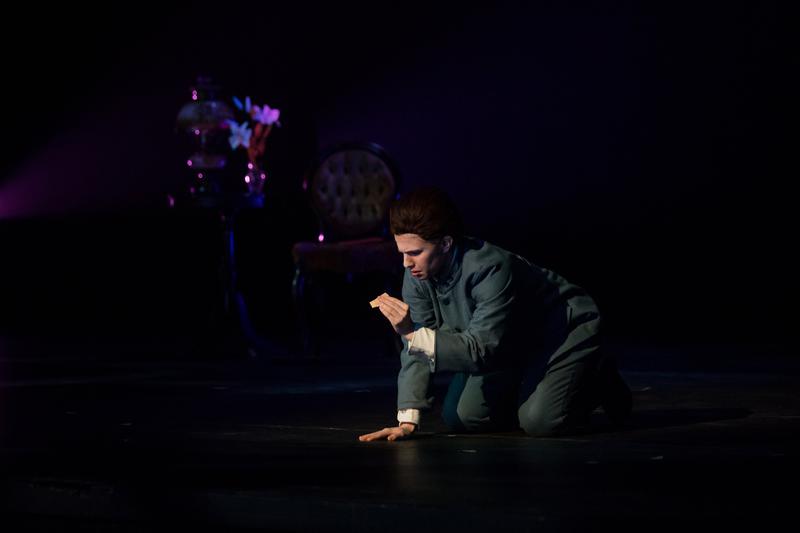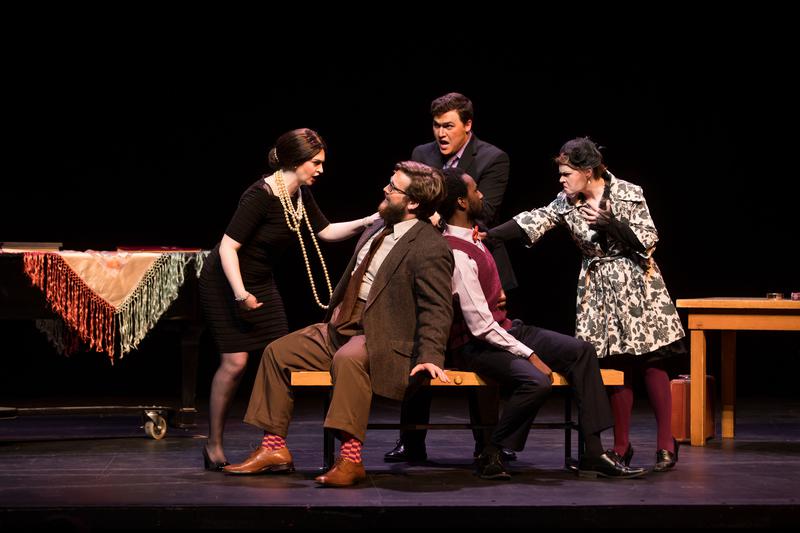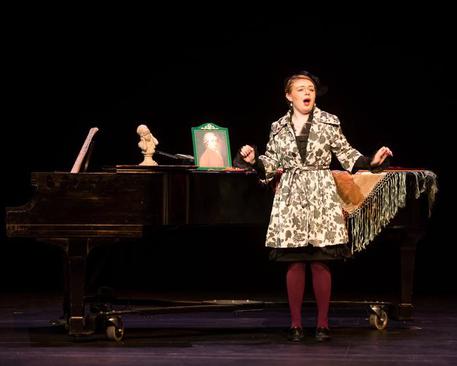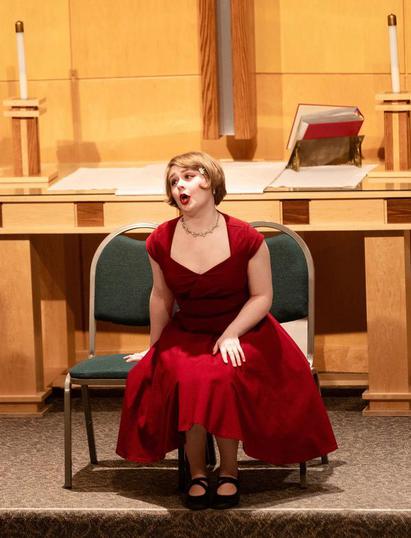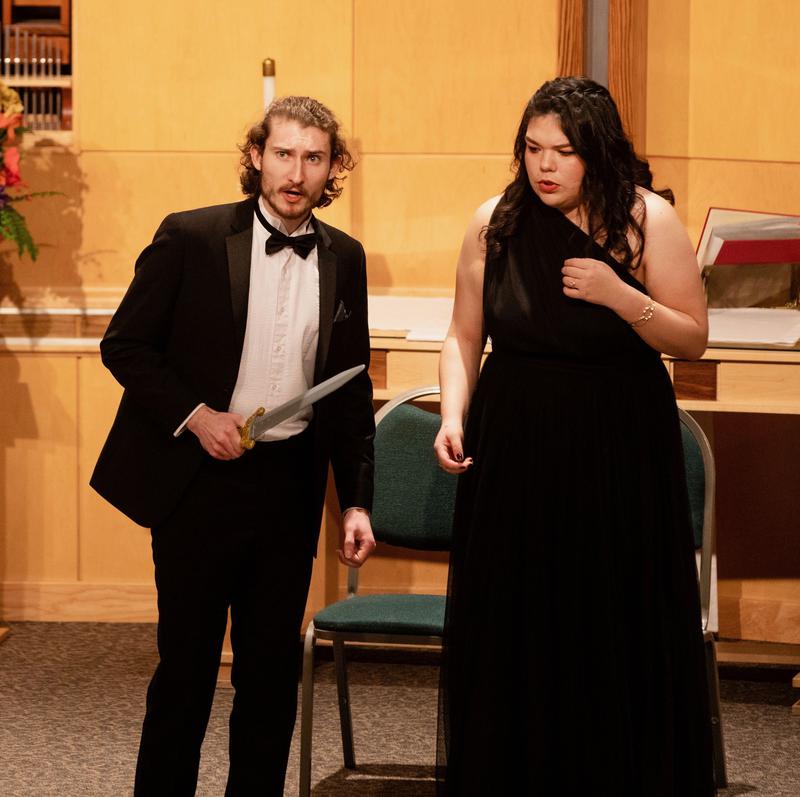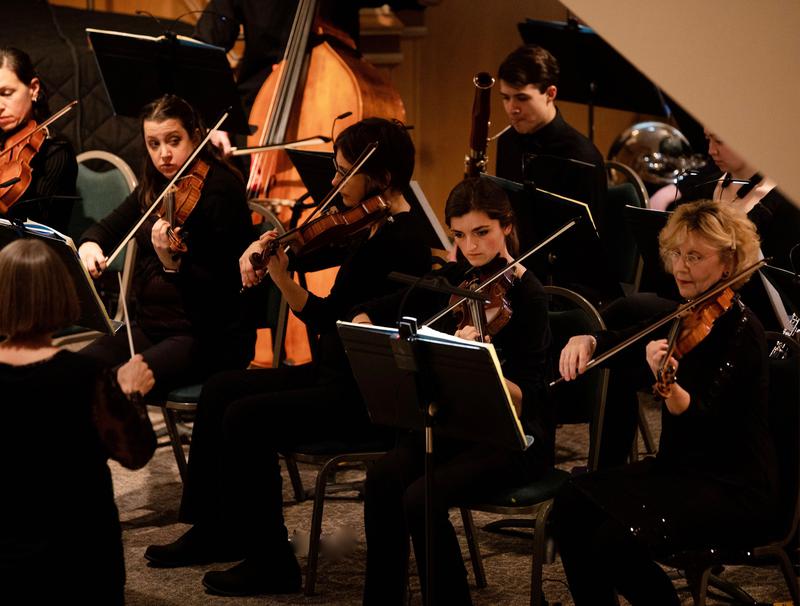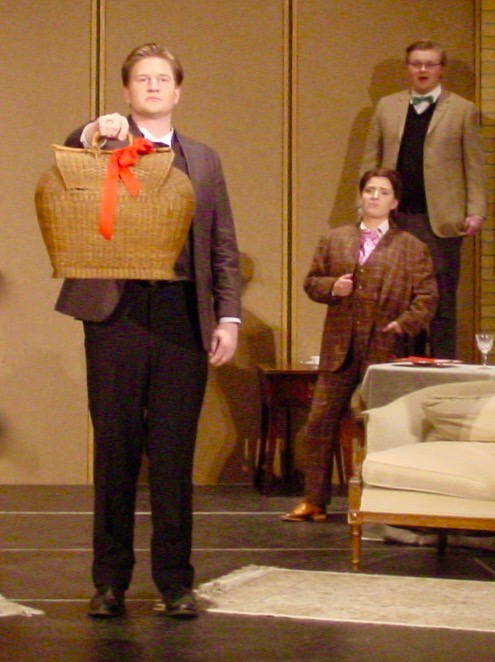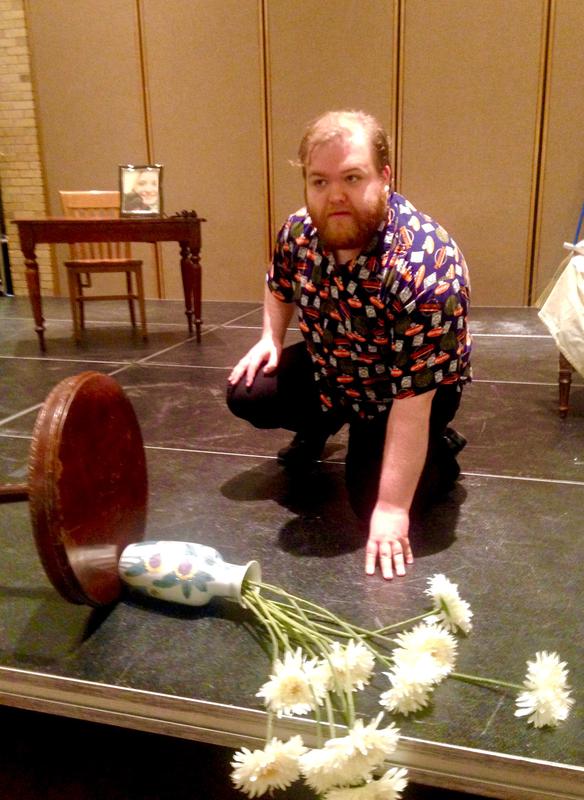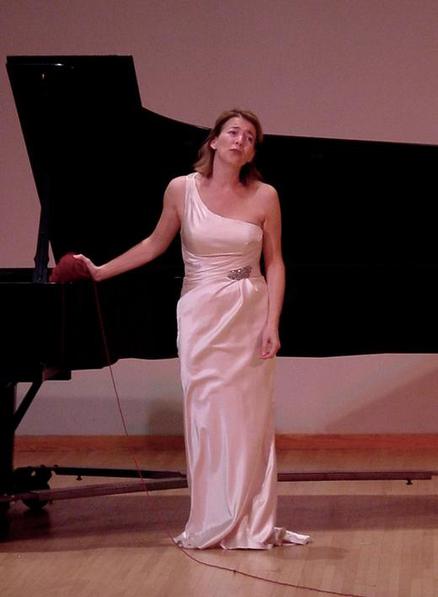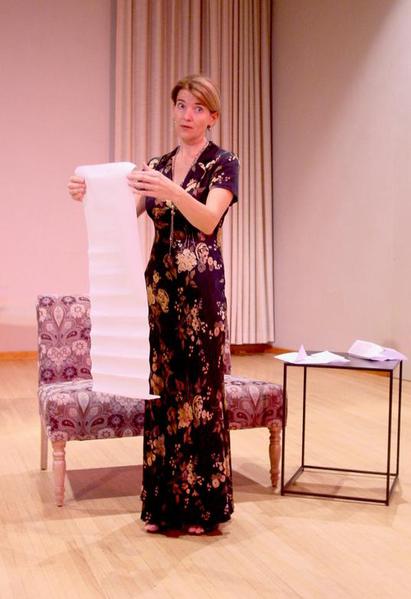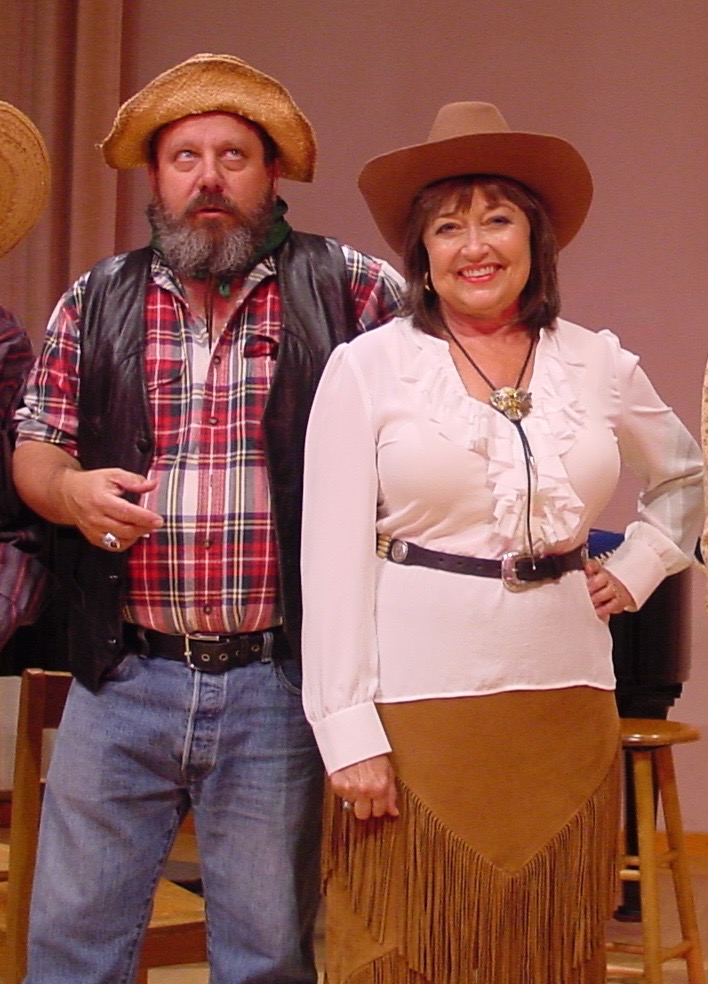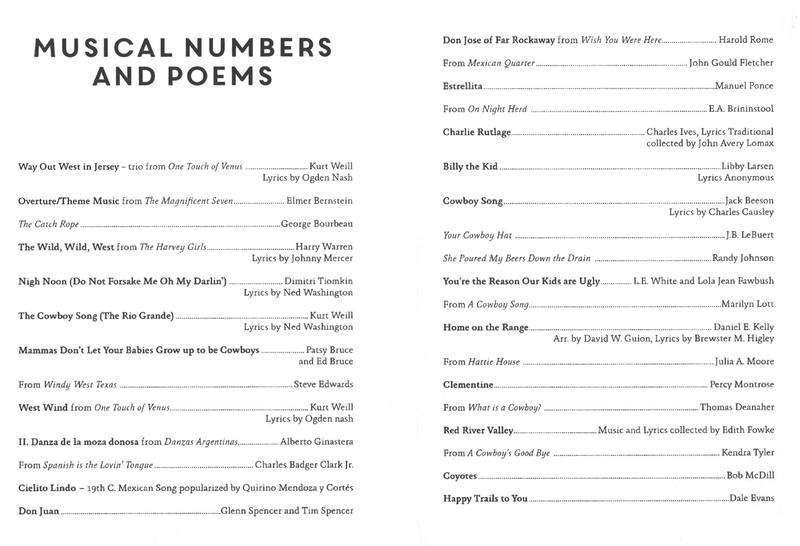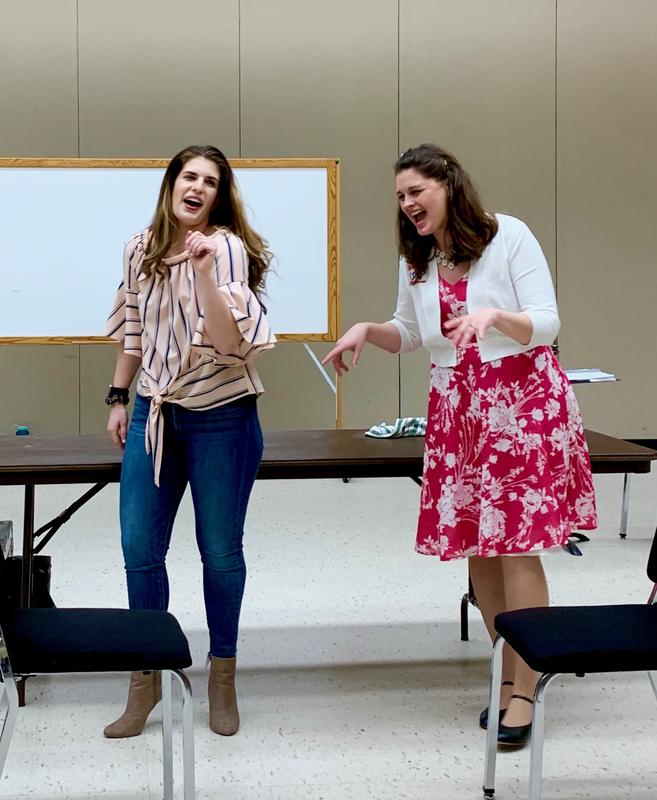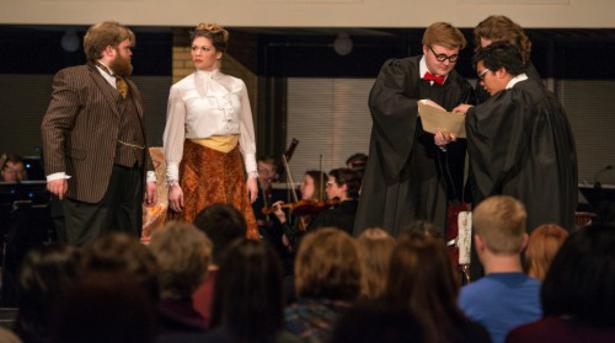Frederic Heringes
January 30, 2018
Concordia Opera & The Concordia Orchestra
present
Act I of
Die Fledermaus
by Johann Strauss Jr.
I directed Michael Ching's
"Speed Dating Tonight!"
in March of 2017, 2018, and 2020
for the Fargo-Moorhead Opera
Speed Dating Tonight, 2017 Cast
at Rustica Bar, Moorhead, MN
Così fan tutte
BY W. A. MOZART
MARCH 22 & 24TH, 2019
WELD HALL, MSUM
STEPHEN SULICH, CONDUCTOR
FREDERIC HERINGES, STAGE DIRECTOR
Cast
Fiordiligi - Rachael Marino
Dorabella - Kara Morgan
Despina - Kiley Hazelton
Ferrando - Miles Herr
Guglielmo- Lloyd Reshard Jr.
Don Alfonso - Anthony Leathem
Stage Directing Projects
Frederic-Heringes@earthlink.net
2017 Video Cast:
Elizabeth Lewis, Nicholas DeMeo, Jamie Hagen, Tylen Bultema, Katelyn Jackman, Clark Weyrauch, Jonathan Wells, and Timothy Madden
As guest stage director at North Dakota State University 2018 - 2020:
Lighting Design: Benjamin Fink
Student Cast
Patience - Tessa Hartl
Reginald Bunthorne - Taylor Krug
The Duke - Brady Ritland
Lady Jane - Kate Allen
Archibald Grosvenor - Alex Barta
Lady Angela - Kathryn Zerbst
Lady Ella - Erin Ehlis
Lady Saphir - Angela Spidahl
The Colonel - Tyrie Williams
The Major - Anthony Peralta
Rapturous Maidens and Officers of the Dragoon Guard:
Lauren Craig, Sewit Eskinder, Jennifer Nannenga, Makayla Scherrer,
Floyd Althoff, Seth Brandl, Micah Nicolai, Ayden Smith, Marshall Ziegler.
Photos: Kensie Wallner Photography
Costume Designer: Aylish Hilkert
Director's Notes on Patience
Gilbert & Sullivan’s Patience was first performed in 1881, their sixth operatic collaboration since Thespis (1871), whose musical score is now, sadly, lost. Patience was written and composed directly after two of their most enduring and well-known pieces: H.M.S. Pinafore (1878) and The Pirates of Penzance (1879). Although, perhaps, not as familiar to music lovers in the U.S. as other G & S operas, Patience nevertheless is a brilliant send-up not only of the aesthetic movement in Mid-Victorian England but, more importantly, a rather pointed commentary on the social constructs concerning Victorian ideas of love, culture, gender, and marriage. Research materials on W.S. Gilbert and Sir Arthur Sullivan, in the form of biographies, books, library catalogs, musical and dramatic analyses, dissertations, theses, online chat rooms, clubs and blog pages are seemingly endless. G & S devotees are often very passionate in their love and admiration for the “Savoy Operas” and also very opinionated. You have only to go online and search: “Gilbert Sullivan operas analyses” to discover the range of material available. I think of all of the European composers, maybe only Mozart and Wagner have been as extensively researched and analyzed.
The character of Patience assumes the role in an archetypical story, common in ancient myths and modern day adventures, usually assigned to a male character: that of the hero who is on a quest. In her case, to answer the question for herself “What is love?” *
* “…and how is it to be distinguished from insanity?”
The examples of love Gilbert presents her with are not terribly helpful in answering her question: the rapturous maidens and their confusing attitude towards their now ex-fiancés in the Dragoon Guards; their mooning after Reginald Bunthorne simply because he is the latest thing, a “fleshly, aesthetic” poet; Bunthorne’s “morbid love of admiration” regardless of from whom it comes, and his fixation on Patience precisely because she is the one person who does not love or admire him; Grosvenor’s love for himself; and the maidens’ 360-degree turn in their affections: literally two minutes after Bunthorne is no longer matrimonially available and Grosvenor arrives on the scene they proclaim their love for him: “Aesthetic! He is aesthetic! Then, we love you!”
Even the Dragoon Guards are not the finest role models for Victorian ideals of love. They are lacking in any kind of sentiment in their approach. Tipping the scales towards the polar opposite of the maidens’ attitude, they are practicality itself: “The Colonel gives the word and all propose together”. The Colonel’s and the Duke’s entitled attitudes towards marriage sums up their perceptions of love and marriage nicely: “Oh, the Duke chooses first… Observe: suppose you choose Angela, I take Saphir, Major takes nobody. Suppose you take Saphir, Major takes Angela, I take nobody. Suppose you choose neither, I take Angela, Major takes Saphir. Clear as day!” This is bad enough, but the two ladies in question are present during the conversation and make no protestations and, indeed, sing about it! (No. 17 Quintet: “If Saphir I choose to marry”.) We even eventually discover that even Lady Jane, devoted as she seemingly is to Bunthorne: ”Cheer up! I shall not desert you!” is not above reconsidering raising her social station through marriage. Gilbert is very consciously parodying upper-class values in selecting his characters from the moneyed class: Ladies “all of county family” and Officers of the Dragoon Guards, along with Reginald Bunthorne of Bunthorne Castle.
But through it all love, of a sort, triumphs. Everyone ends up with exactly the person they deserve: shallow upper class ladies with shallow upperclass officers. Patience with (spoiler alert) Grosvenor. And Bunthorne? Exactly the person he deserves.
Frederic Heringes
February 2019
February 2019
February 2018
Lighting Design: Benjamin Fink
Ravel: L'enfant et les Sortilèges (in French)
Mozart: The Impresario (in English)
Director's Notes
In Mozart’s Der Schauspieldirektor (The Impresario) we are presented with a very straightforward Opera War of a traditional and very stereotypical kind: That of two (or more…) warring opera divas who can be mollified by only one of them being recognized as the Prima Donna Assoluta or the “Supreme First Lady” of song. Aside from opera being considered by some as a “Holy Art” (heilige kunst), the fact remains that there is dirt in the details: Who decides which soprano gets top billing, the plummiest role, the best dressing room, the highest salary, or the nicest costumes? And who’s going to pay for it all? Where did the money come from? And who makes those decisions? In other words: how do you get all of that “Holy Art” on to the stage in the first place? In this simple one-act opera, Mozart and his librettist managed to give the world a pretty accurate Eighteenth-Century snapshot of the whole sordid music business they most likely had experienced first-hand.
With Maurice Ravel and Colette’s L’enfant et les sortilèges, our audience will be experiencing Opera Wars of several kinds.
The genesis of the opera began around 1916 when the French writer Colette was presented with a commission for an opera libretto. France at the time was embroiled in WWI (1914-1918), with much of the fighting taking place on native soil. Like many of his fellow Frenchmen, Ravel had enlisted in the French army serving in a field hospital, and as a truck driver. Although Colette had sent him the libretto during this time, he didn’t receive it until shortly before the conclusion of the war in 1918. By this time, there had been over 18 million deaths and 23 million wounded, ranking WWI among the deadliest conflicts in human history. No one in France was untouched by the war. Ravel experienced the loss of many of his musical colleagues: instrumentalists, singers, and composers who also fought in the war and who had lost limbs or even their lives. Ravel's health was permanently affected by the stresses of WWI, including the death of his mother in 1917. He was plagued by insomnia during the war and for the rest of his life. After several years of depression following the war, he finally began composing L’Enfant, completing it in 1925.
Surely his experiences in the war had some influence on his composition. For instance, the child’s cry of “Maman!” before the final scene is a cry of pain, loss, and want. The cry of the wounded soldiers that Colette saw in the hospital in which she volunteered, and of those whom Ravel had fought alongside at the front. Ravel was deeply devoted to his mother and was, if you will, a bit of a ”Mama’s boy”. He admitted that he had enlisted against his mother’s wishes, and much like the naughty child in the opera: “I know I’m committing a crime.” he wrote to a friend regarding his enlistment: “…but my mother is a poor old woman …, whose sole ideal has always been the love of her husband and children, and who would feel no shame in conserving what remains for her. A sort of monster, right? How many monsters like that exist, and you know how I love this one.” The action in L’Enfant centers around a naughty child who disobeys his mother, and the price he has to pay for his disobedience, for his disregard for the feelings of others, and for forgiveness and absolution.
Another war is the war of the words in Colette’s original libretto with the staging you will experience in our production of the opera. Traditional productions of the opera include costuming singers as, variously: a dancing teacup and teapot, a neurotic French Provincial clock, torn wallpaper, a tree, a singing squirrel and a dragonfly or two. In setting the opera in the world of WWI, all of these inanimate or barely sentient things become living human beings. So the thoughts and actions indicated in the libretto will not always line up with the action and characters depicted onstage but still contain, I believe, a strong parallel. The message remains the same: compassion and forgiveness can be a moral force of good in the world.
Frederic Heringes
February, 2018
NDSU Baroque Festival, November 2019
Concordia College, February 2020
Concordia College, February 2019
Maxwell Trochlil in Tobermory Isaiah Burkel in Leo Emily Oliverson in Tobermory
Double click here to add text.
Photos: Kensie Wallner Photography
Photos: Kensie Wallner Photography
September 2016
Concordia College
F. J. Haydn: Arianna a Naxos
Dominick Argento: Miss Manners on Music
Holly Janz, Mezzo-Soprano
Staged by Frederic Heringes
Director’s Notes on Arianna a Naxos and Miss Manners on Music.
Arianna a Naxos (1789) by Franz Joseph Haydn was conceived as a cantata for pianoforte and voice, while Miss Manners on Music (1998) by Dominick Argento was conceived as a song cycle, for piano and voice. Although composed more than two centuries apart, they both are written in a recitative/aria form, more commonly found in opera than in song cycle literature. Both portray dramatic situations, but have no real forward motion dramatically, i.e. telling a story in a strict dramatic form that has exposition, a climax, and a denouement.
When Arianna was written, it was assumed that all educated persons who would be hearing the piece already knew the legend of Ariadne, who assisted Theseus in his quest to slay the Minotaur (for which he promised to marry her and take her away from Crete) and escape from the labyrinth by providing him with red thread which he unrolled as he penetrated the labyrinth, allowing him to find his way back out. After taking her away, Theseus abandons Ariadne as she sleeps on the beach on the Island of Naxos. In some versions of the myth, Ariadne is discovered there by the god Dionysus, who falls in love with her and makes her his wife.
In the Haydn Arianna, we are only given a snippet of her entire story: Arianna coming to terms with her abandonment and betrayal (standard 18th century fodder for a tragic heroine...) by the man who swore to marry her. No dramatic “wrap up” of her story or denouement. (perhaps the surprising F-Major chord at the end is a sly foreshadowing by Haydn of what is yet to come for Arianna?).
In Miss Manners on Music we are presented with perhaps a more conscious attempt to bring the drama to the forefront of the recital stage yet, again, there is no plot or story in Miss Manners; simply a string of letters written to an advice columnist and her verbatim answers as published in the press. The composer’s structure certainly implies that a character is being created in Miss Manners, lending the sense that perhaps, for this song cycle, one might costume the protagonist and maybe include a pot of tea for her onstage, or reading glasses, not quite extending the form to a complete dramatic staging, but implying such.
Because of this blurring of styles and action we were encouraged to take the pieces a step further, making them more “three dimensional” through physical staging, as opposed to the more “two dimensional” approach of the recital stage. (Since going through the rehearsal process for Miss Manners on Music, I am convinced that Argento has buried more in the piece than meets the eye on the page. His instincts as an opera composer are evident throughout creating a deeper, more complex character portrait than we first perceived: Miss Manners as frustrated artist?).
In essence, we have “dropped in” on these character’s lives and get only an added snapshot or sketch of what’s going on though the staging. In the end, I hope our approach will add to and not distract from one’s raison d’être of attending either a recital or an opera: the music.
Frederic Heringes
September 2016
A Cowboy Cabaret
or
East or Home, West is Best
Music and poetry of the Old West (sort of...)
Hvidsten Hall, Concordia College
September 2015
Peter Halverson, Frederic Heringes, Lucy Thrasher, Vocalists
Stephen Sulich, Piano
Eric Martens, Guitar
Arianna begins at timing 00:40 Miss Manners at 01:06:40
Recommended viewing: Trio at timing 25:42
Video viewing recommendations:
40:15 Act I recitativo and sextet "Alla bella Despinetta"
01:18:57 Act II recitativo and aria "Una donna a quindicianni"
Scene recommendation timings:
Act I 06:26 42:16 53:44 103:10
Act II 01:24:11 01:37:35
Recommended viewing at timings: 20:58 38:38
Micah Nicolai and Kathryn Carstensen-Zerbst
Tessa Hartl
Jacee Engels
Taylor Krug and Tessa Hartl
Brady Ritland and Anthony Peralta
Kate Allen
I recently directed the short opera film Dinner 4 3 for FMOpera and the Decameron Opera Coalition
The Cast - The Wife: Katelyn Jackman The Husband: David Hamilton The Lover: Josh Kohl
Director: Frederic Heringes Videographer: Wayne McConnell Music Director: Stephen Sulich
The film premiered online on October 16, 2020 on the Decameron Opera Coaltion website.
Speed Dating, 2020
Jacee Engels and Jamie Hagen
2018 Cast
Double click here to add text.DIRECTOR
Short Opera Film:
Dinner 4 3 (Composer, Michael Ching) Online premiere October 16, 2020
Fargo/Moorhead Opera for the Decameron Opera Coalition: Tales from a Safe Distance
Fully staged productions with orchestra:
Cosi fan tutte (Mozart, in Italian) March 22 & 24, 2019 Fargo/Moorhead Opera
Patience (Gilbert & Sullivan) February 15 & 17, 2019 NDSU Challey School of Music
Two Bad Cats: Leo (by Michael Ching) and Tobermory (by Jorge Martìn) Concordia College, Moorhead, MN January 29, 2019
Opera Wars: The Impresario (Mozart, in English) and L’Enfant et les sortilèges (Ravel, in French) NDSU Challey School of Music February 16 & 18, 2018
Rosina Remembered: A play, with operatic interludes by Mozart & Rossini Concordia College, Moorhead, MN February 1, 2020
Giulio Cesare (Händel, in Italian) November 22 & 23, 2019 NDSU Challey School of Music, Baroque Festival Semi-staged, Abridged
Die Fledermaus (J. Strauss Jr.) Act I January 30, 2018 Concordia College, MN
Piano/combo accompaniment:
Speed Dating Tonight! (Michael Ching) March 8 & 9, 2024. Fargo/Moorhead Opera
To This We’ve Come: Scenes from 20th Century American Operas. Fully Staged and designed. MSUM Voice Festival, January 2022
Speed Dating Tonight! (Michael Ching) 2017, 2018, & March 2020 Fargo/Moorhead Opera
The Face on the Barroom Floor (Mollicone) Fargo/Moorhead Opera, March 2016
Stage Director for Young Opera-Artist Program: 2016 - 2020 Fargo/Moorhead Opera
Guest Artist, Stage Director: NDSU Challey School of Music 2017 - 2020
Voice Faculty: Minnesota State University Moorhead, School of Performing Arts 2015- 2018
Music Department Opera Scenes Programs for: NDSU Challey School of Music, SUNY Buffalo, University of Houston, Chautauqua School of Music, Concordia College.
Speed Dating Tonight!
Fargo/Moorhead Opera
March 8 & 9, 2024
Gregory Sliskovich and Julie Ly in rehearsal
